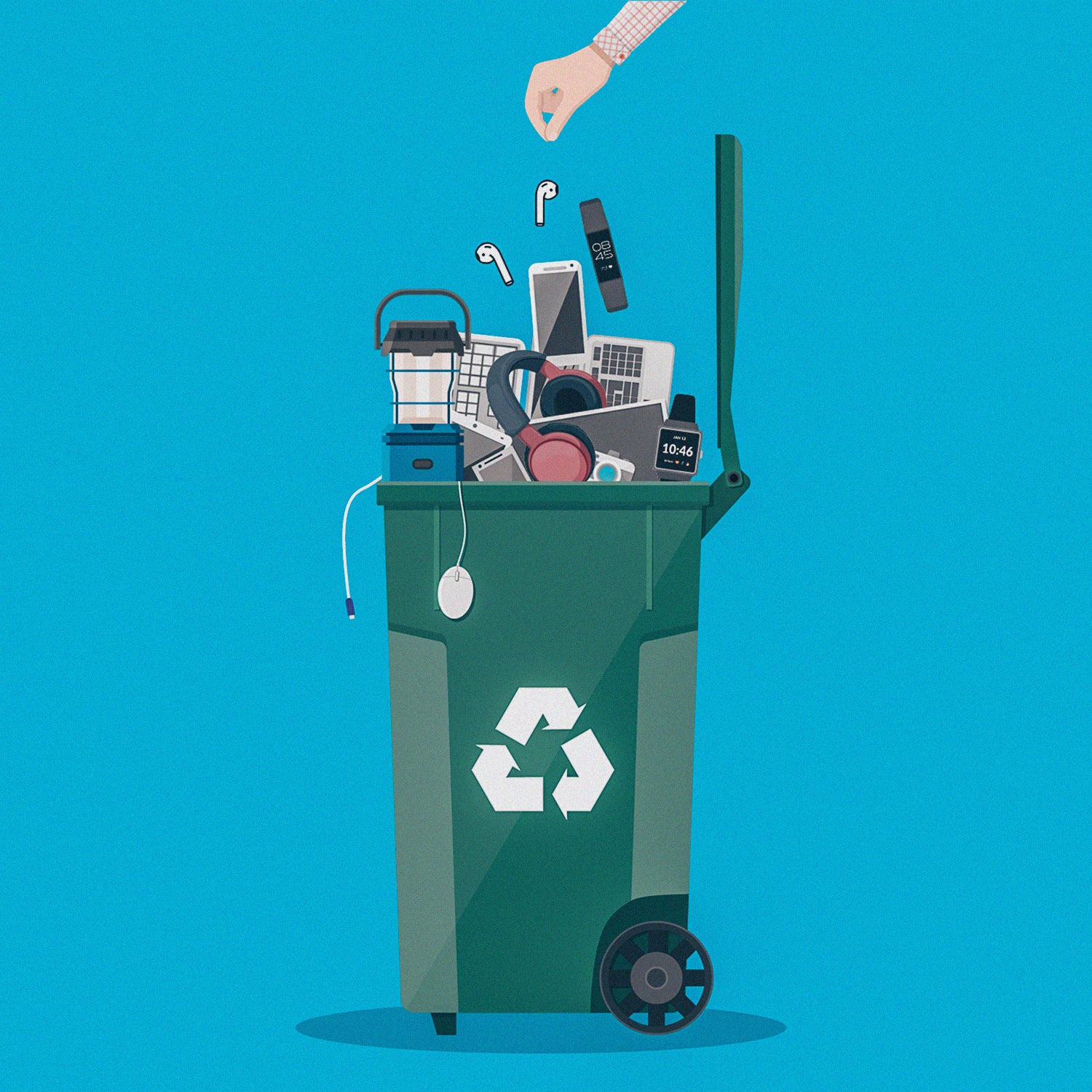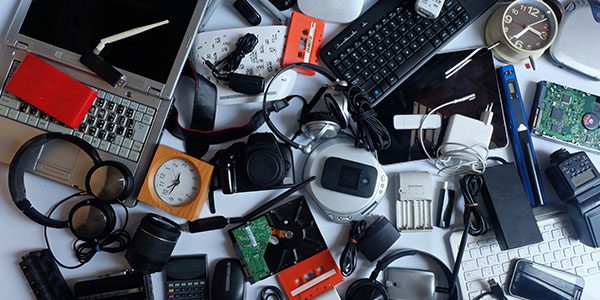Elevate Your E-Waste Monitoring With R2 Accreditation: an Extensive Overview
One key technique to boost e-waste administration practices is by obtaining R2 certification. By checking out the advantages and procedures linked with R2 certification, a deeper understanding of exactly how it can change e-waste management techniques arises, shedding light on a path in the direction of sustainability and moral disposal methods.
Value of E-Waste Management

When e-waste is not handled appropriately, these harmful compounds can seep right into the ecological community, causing harm to wildlife and possibly entering the food cycle, presenting risks to human health. Furthermore, the incorrect disposal of e-waste adds to air pollution and greenhouse gas discharges, aggravating climate modification and ecological degradation.

Advantages of R2 Accreditation

To start with, R2 accreditation boosts trustworthiness by showcasing a company's dedication to lasting techniques. It assures consumers, companions, and stakeholders that the company complies with stringent requirements for e-waste monitoring - r2 certification. This reliability can cause raised count on and boosted relationships with clients who focus on environmental responsibility
Secondly, R2 qualification helps reduce dangers related to incorrect e-waste disposal. By complying with the rigorous guidelines set forth by the accreditation, organizations can lessen the chance of data breaches, environmental contamination, and legal consequences. This positive technique safeguards the firm's reputation and reduces prospective obligations.
Last but not least, R2 qualification shows a dedication to ecological stewardship - r2 certification. By sensibly taking care of digital waste via licensed procedures, companies add to the preservation of resources, reduction of pollution, and promotion of a circular economic situation. This commitment not only benefits the environment but also straightens with advancing customer assumptions for lasting service methods
R2 Accreditation Process Overview
Having actually developed the benefits of R2 certification in promoting credibility, threat reduction, and environmental stewardship, it is necessary to now outline the thorough procedure included in obtaining this qualification. The R2 qualification process starts with a detailed evaluation of the organization's functional plans and procedures to make certain conformity with the R2 standard. This first evaluation is essential in identifying any kind of gaps that require to be attended to before continuing even more.
Once the company's practices straighten with the R2 common requirements, an independent third-party auditor performs an on-site audit to examine the implementation and performance of these practices. This audit consists of an extensive testimonial of paperwork, meetings with personnel, and physical examinations of facilities to verify conformity.
Following a successful audit, the company gets a qualification decision based upon the auditor's searchings for. If authorized, the company is given R2 qualification, demonstrating its commitment to liable e-waste administration. It is necessary to note that keeping R2 qualification needs ongoing conformity with the requirement's needs and periodic audits to make sure ongoing adherence to best methods in e-waste recycling and disposal.
Key Criteria for R2 Conformity
A vital facet of achieving R2 compliance is making sure that all digital waste (e-waste) handling facilities meet rigid ecological and safety and security standards. To follow R2 demands, companies need to stick to key criteria that concentrate on accountable e-waste administration methods. These standards consist of implementing a documented environmental, health, and safety management system, guaranteeing the safe handling of data-containing gadgets, and carrying out detailed downstream due persistance to track the last location of e-waste products.
Additionally, R2 conformity requires the appropriate testing, refurbishment, and recycling of electronic tools to expand its valuable life and decrease ecological effect. Facilities seeking R2 accreditation should also prioritize worker health and wellness and security by offering required training, personal safety tools, and a risk-free working environment. In addition, keeping in-depth records of e-waste handling tasks and consistently going through audits by certified certifying bodies are essential parts of demonstrating ongoing conformity with R2 requirements.
Impacts of Lasting E-Waste Practices
The implementation of lasting e-waste methods based on R2 conformity not only ensures ecological and security standards are fulfilled but additionally substantially impacts the total lifecycle of electronic items. By adhering to R2 criteria, electronic waste monitoring processes come to be much more efficient, minimizing the environmental impact of digital products. Lasting e-waste practices promote the appropriate straight from the source disposal of digital components, making sure that dangerous products are handled sensibly and do not end up polluting the setting.
In addition, lasting e-waste techniques can add to work production in the recycling and repair fields, cultivating financial development while advertising ecological duty. On the whole, the fostering of lasting e-waste techniques under R2 qualification offers as a critical action in the direction of attaining a much more ecologically sustainable electronics industry.
Verdict
To conclude, applying correct e-waste click here for info monitoring methods is important for environmental sustainability and resource preservation. R2 qualification plays a crucial function in guaranteeing responsible handling and disposal of digital waste. By sticking to the strict criteria stated by R2 criteria, organizations can not only decrease their ecological impact yet additionally add to a more lasting future for generations to find.
One trick technique to elevate e-waste monitoring methods is by achieving R2 certification. By discovering the benefits and procedures connected with R2 certification, a much deeper understanding of exactly how it can revolutionize e-waste monitoring methods arises, dropping light on a course towards sustainability and moral disposal methods.
The R2 certification procedure starts with a detailed evaluation of the company's operational plans and procedures to make find out here now sure compliance with the R2 requirement. If approved, the organization is provided R2 accreditation, showing its commitment to accountable e-waste management. Generally, the adoption of sustainable e-waste techniques under R2 certification offers as a crucial step in the direction of achieving a much more eco sustainable electronics sector.